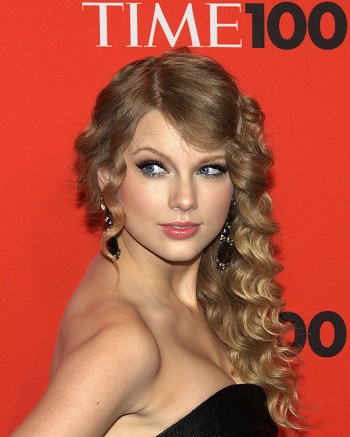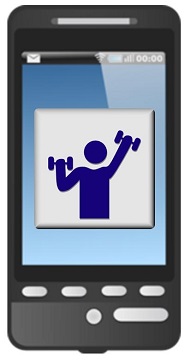The company has made a number of bets on top mobile gaming applications with celebrity names.
Glu Mobile has now announced a new deal that will allow it to create a Taylor Swift game app and continue its efforts to keep gaming applications in the most popular lists through the use of hot celebrity names in their titles.
The company has previously seen considerable successes with games that have gone viral – and hugely profitable.
Among the most notable Glu Mobile products that have come before the Taylor Swift game app deal include “Kim Kardashian Hollywood”. That mobile application reached astronomical heights, at its most popular point. Now, the gaming company is clearly hoping to continue to replicate those types of successes with another breakout title by way of a partnership with a tremendously popular celebrity.
Details about the Taylor Swift mobile game have not yet been released by Glu Mobile or the pop star.
 What was revealed was that Taylor Swift and Glu Mobile would be working together in a partnership that is expected to remain intact for several years. The purpose is to come up with a mobile game that will provide a “new and highly differentiated gaming experience.” That was the full extent of the game details that were released, which clearly isn’t very much.
What was revealed was that Taylor Swift and Glu Mobile would be working together in a partnership that is expected to remain intact for several years. The purpose is to come up with a mobile game that will provide a “new and highly differentiated gaming experience.” That was the full extent of the game details that were released, which clearly isn’t very much.
It is expected that the mobile game app will be launched near the end of 2016, according to the predictions made by Glu. The company also pointed out that this was the first time Swift has ever stepped into the mobile gaming world.
That said, the Taylor Swift game app with Glu might be the first gaming application that will be created by the pop star, but this is far from the first time she has developed a property on mobile real estate. In fact, she has already won an Emmy award for her “AMEX Unstaged: Taylor Swift Experience,” in the category of “Original Interactive Program.” That mobile app was available both on Android and iOS based devices and makes it possible for users to head inside a 360 degree experience of the artist’s “Blank Spaces” music video.
The results of new research from the University of Toronto looked into the top three applications.
The outcome of a new study, conducted by the University of Toronto, has revealed that the three most downloaded mobile apps for fitness tracking aren’t nearly as accurate as their users likely believe them to be.
The U of T study indicated that fitness apps have a notably lower accuracy rate than regular pedometers.
When it comes to measuring how much a person walks in a day, standard pedometers were found to be considerably more accurate than the top three downloaded mobile apps that are meant to be used for the same purpose. This is concerning as those applications have been increasing in their popularity and are used by people who are attempting to motivate themselves to reach a more healthful physical activity level every day.
While messaging mobile apps remain the most popular, health and fitness applications have high engagement rates.
 In fact, a Flurry Analytics survey conducted last September on behalf of Yahoo Canada actually showed that health and fitness apps scored higher on their engagement rate. It is estimated that they are on 11 percent of smartphones. There may be fewer of them than messaging apps, but they cause greater engagement with their users than those more popular rivals.
In fact, a Flurry Analytics survey conducted last September on behalf of Yahoo Canada actually showed that health and fitness apps scored higher on their engagement rate. It is estimated that they are on 11 percent of smartphones. There may be fewer of them than messaging apps, but they cause greater engagement with their users than those more popular rivals.
Due to this high engagement rate, it has made this type of mobile application extremely appealing to companies of all sizes. Everyone from giants to tiny startups are trying to carve out a piece of the market for themselves.
Unfortunately, in this haste to take part, it doesn’t look as though all the participants are taking the care that would be required to make sure their mobile apps are as accurate for users as the main alternative – using a traditional pedometer. The apps that were considered by the study included Moves, Runtastic and Accupedo. The authors of the report stated that “the most commonly downloaded smartphone applications are neither valid nor consistent in measuring step counts.” Several tests were run on both Android and Apple devices in order to allow the researchers to come to this conclusion.
 What was revealed was that Taylor Swift and Glu Mobile would be working together in a partnership that is expected to remain intact for several years. The purpose is to come up with a mobile game that will provide a “new and highly differentiated gaming experience.” That was the full extent of the game details that were released, which clearly isn’t very much.
What was revealed was that Taylor Swift and Glu Mobile would be working together in a partnership that is expected to remain intact for several years. The purpose is to come up with a mobile game that will provide a “new and highly differentiated gaming experience.” That was the full extent of the game details that were released, which clearly isn’t very much.
 In fact, a Flurry Analytics survey conducted last September on behalf of Yahoo Canada actually showed that health and fitness apps scored higher on their engagement rate. It is estimated that they are on 11 percent of
In fact, a Flurry Analytics survey conducted last September on behalf of Yahoo Canada actually showed that health and fitness apps scored higher on their engagement rate. It is estimated that they are on 11 percent of 